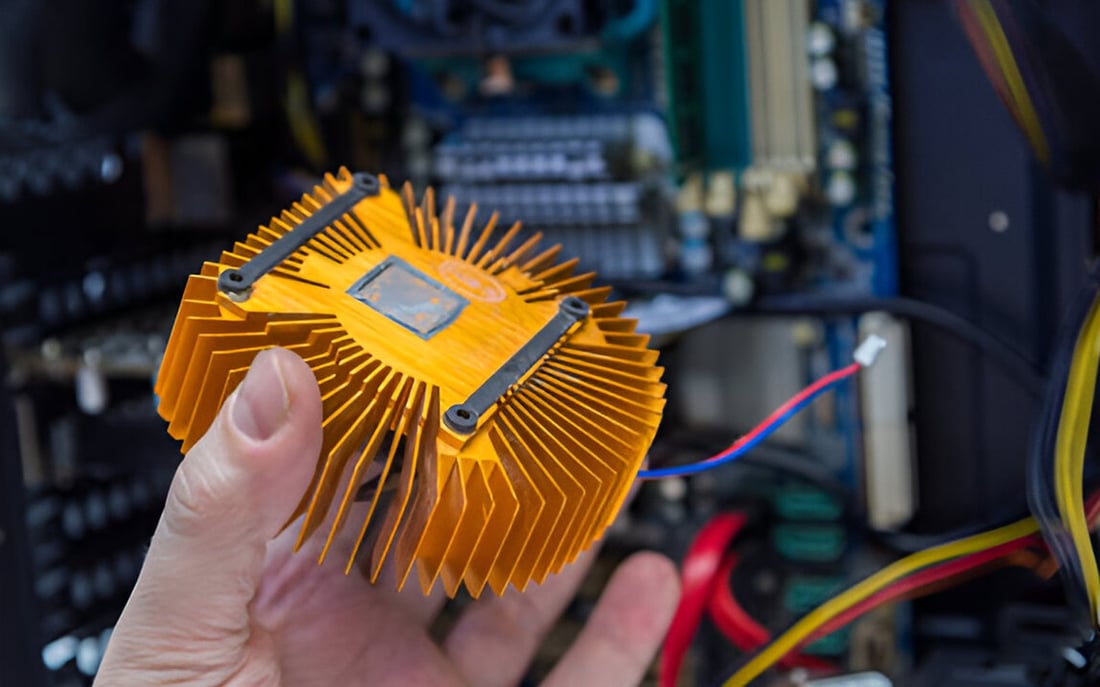The Best Grade Aluminium for Heat Sinks: A Complete Guide
If you are looking to build a heat sink for your electronic devices, one of the most important factors you need to consider is the grade of aluminum. Different grades of aluminum have different thermal properties that make them better suited for certain applications. In this article, we will explain what grade aluminum is best for heat sinks and provide you with a complete guide on selecting the right grade for your needs.
1. What is a Heat Sink?
A heat sink is a device designed to transfer heat generated by an electronic device to a medium that can dissipate it. Heat sinks are commonly used in devices like computer CPUs, power amplifiers, and LED lights where the heat generated can cause damage to the device if not properly controlled. A heat sink works by transferring the heat to air or other fluids to be dispersed over a larger surface area.
2. Why is Aluminum Used for Heat Sinks?
Aluminum is frequently used in heat sink construction because it offers excellent thermal conductivity, high strength, lightweight, and affordability. These characteristics make it a popular choice for building heat sinks as it can quickly absorb heat and efficiently dissipate it. Another advantage is that aluminum is corrosion-resistant, making it ideal for electronic devices that need to function in harsh environments.
3. Understanding Aluminum Grades
Aluminum is available in several grades, each suitable for different applications. The most commonly used aluminum alloys for heat sinks are 6061 and 6063. These alloys are used because they have a thermal conductivity of about 200W/m K, which is a high thermal conductivity relative to other available materials. Other grades like 7075 and 2024 are more often used in aerospace and military applications.
4. 6061 Aluminum Grade
6061 aluminum is a common alloy used in heat sinks due to its high thermal conductivity and good corrosion resistance. It is also lightweight and easy to work with. This grade of aluminum is ideal for heat sinks that will be exposed to harsh outdoor environments, or high-performance applications like computer CPUs or LED lighting.
5. 6063 Aluminum Grade
6063 aluminum grade is especially popular for extrusion heat sinks due to its excellent thermal conductivity and ability to be easily formed into complex shapes. Heat sinks made from this grade of aluminum are commonly used in automotive, commercial, and industrial applications.
6. 7075 Aluminum Grade
7075 aluminum is a high-strength alloy often used in aerospace and military applications where the heat dissipation is critical and the environment is harsh. Heat sinks made from 7075 aluminum are ideal for these applications due to their toughness, high thermal conductivity, and ability to withstand extreme temperatures.
7. 2024 Aluminum Grade
2024 aluminum is another high-strength alloy that you can use for heat sinks in extreme environments. Heat sinks made from this grade can dissipate heat effectively and withstand greater temperatures. While it is not as thermally conductive as the other grades, it has superior strength characteristics that make it ideal for military and aerospace applications
8. Selecting the Best Aluminum Grade for Your Heat Sink
Choosing the right grade of aluminum for your heat sink depends on a variety of factors. Consider the thermal conductivity, strength, weight, and cost to arrive at the most suitable grade for your application. If you are unsure which grade of aluminum is best for your needs, speak to a professional who can recommend the most suitable grade based on your requirements.
9. Final Thoughts on the Best Grade of Aluminum for Heat Sinks
In conclusion, heat sinks are an essential component of electronic devices and help to reduce the temperatures generated by sensitive components. Selecting the right grade of aluminum is crucial to ensure that your heat sink runs effectively. Consider the thermal conductivity, strength, weight, and cost of each grade to arrive at a decision. Once you have selected the best grade, you can be confident that your heat sink will efficiently dissipate the generated heat, thereby increasing the lifespan of your electronic device.
10. Related Long-tail Keywords:
- What Is The Best Heat Sink Material?
- Heat Sink Aluminum Grades and Selection Factors
- Which Aluminum Alloy is Best for Heat Sinks?
- Choosing the Right Aluminum Material for Your Heat Sink
- Which Metal is Best for Heat Sink Applications?

